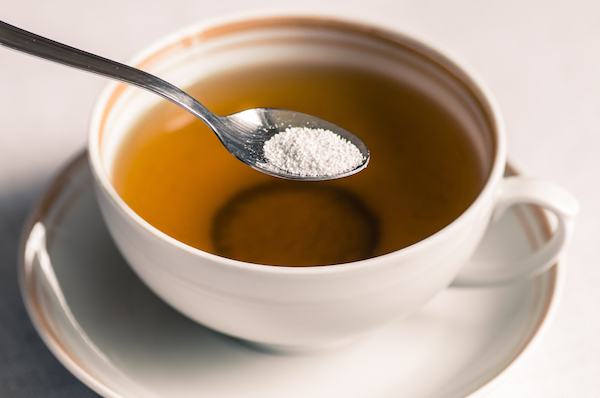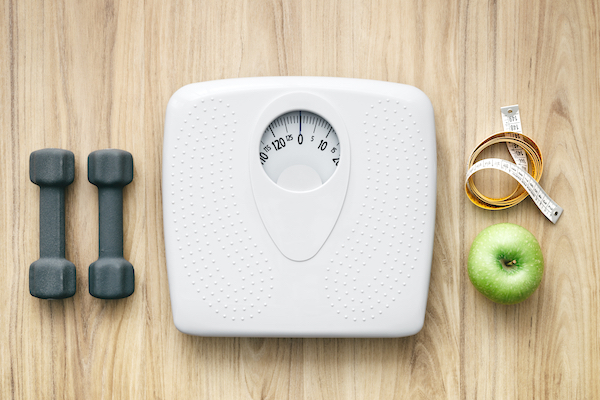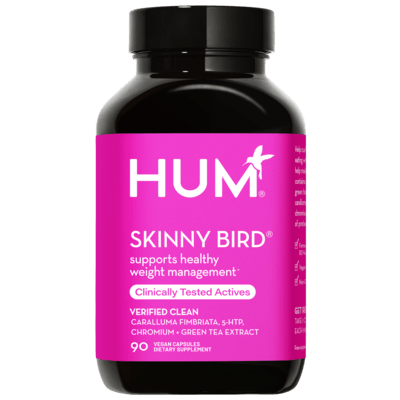Aspartame is a cheap and convenient way for companies to sweeten food and beverages without the extra calories. But there might be a not so sweet side to this artificial sweetener. Jessica Kelley, MS, RD covers what you need to know about this popular sweetener.
What is aspartame?
Aspartame is an artificial sweetener used in many “sugar-free” or “diet” food products.
Aspartame contains four calories per gram, which is already lower than the 15 calories per gram in sugar. As an added bonus to manufacturers, Aspartame is 200 times sweeter than sugar so manufacturers can use a much smaller amount to get the desired taste.What is aspartame used in?
Diet soda is one of the most popular beverages that contains aspartame. It is, in fact, the most popular artificial sweetener used in the diet food industry and used in more than 6,000 foods, beverages and pharmaceutical products on the market. These foods are typically marketed as “light” “sugar-free” or “diet”.
Other common foods with aspartame include: diet beverages, sugar-free fruit juices, flavored coffee syrups, flavored water, sports drinks, chewing gums, sugar-free breath mints, canned fruits, cereals, yogurt, sugar-free desserts, low-sugar condiments, maple syrup, fruit spreads, jelly, jam, chocolate syrup, ketchup, tabletop sweeteners, meal replacement shakes/snacks, cough drops, and cough medicine.

Is it safe to eat?
The ingredients in aspartame are aspartic acid and phenylalanine. Both are naturally occurring amino acids. We produce aspartic acid in the body and get phenylalanine through high-protein foods like meat, fish, chicken, eggs, beans, and nuts. In processing aspartame, the body breaks it down into methanol, which in large quantities is considered toxic. However, this amount is nearly impossible to reach and is why the FDA considers aspartame to be safe for consumption. The FDA set Acceptable Daily Intake (ADI) levels for each artificial sweetener. The ADI for aspartame is 50mg/kg BW. This means for a 150-pound individual it is considered safe to consume 17 cans of 12-ounce diet soda or 97 packets of artificial sweetener containing aspartame each day.So what’s the controversy about?
For the reasons listed above, the U.S. Food and Drug Administration (FDA) approves of aspartame as a safe general-purpose sweetener. It’s the most extensively researched artificial sweetener, with more than 100 studies supporting its safety. To date studies have found no clear evidence that aspartame causes cancer or other serious health problems in humans and therefore is safe for consumption. However, advocate groups disagree.
The Center for Science in the Public Interest (CSPI) indicates most studies done on aspartame were industry-funded, and three larger, independently funded studies found links to cancer. While they argue this is enough to ban aspartame, the study results were only observed in animals. Aside from cancer claims, the CSPI references numerous studies that suggest adverse side effects such as headaches, brain fog, dizziness, and gastrointestinal distress.

What if we’re trying to lose weight?
Most people use artificial sweeteners to replace sugar and help with their weight-loss goals. Indeed, some studies show that replacing sugar with artificial sweeteners can reduce total calorie consumption and therefore help with weight loss. However, some studies now show that artificial sweeteners can actually have a native effect on your weight loss effort and even cause weight gain.
Research shows this may happen because of a few reasons. First, when you eat something sweet, your brain expects energy. But when you consume artificial sweeteners, your brain doesn’t get that burst of energy, which results in more cravings. In some cases, you even end up consuming excess calories.
Then, because artificial sweeteners are sweeter than sugar, if you use them regularly, you may become desensitized to sweetness. That means foods with natural sweetness don’t taste sweet to your tastebuds and become less appetizing.
Finally, we all know the importance of gut health. Research is indicating that artificial sweeteners can change the gut bacteria and cause an increased risk for weight gain.
It’s important to note that individuals with phenylketonuria (PKU), a condition where individuals cannot properly process phenylalanine, must avoid aspartame and other foods high in phenylalanine to avoid toxicity. Don’t be alarmed: it’s a rare genetic disorder and is diagnosed at birth.









